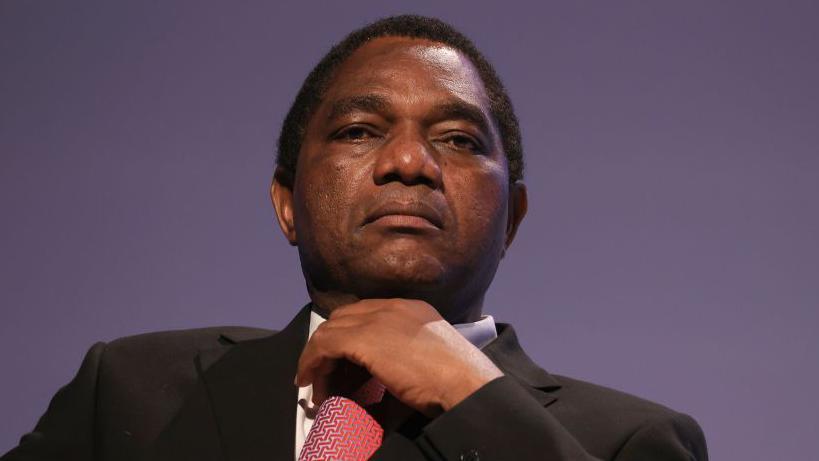Zambia’s President Hakainde Hichilema has recently dismissed three high-profile judges whom he had previously suspended, escalating accusations of political interference within the judiciary. These judges, Justices Annie Sitali, Mungeni Mulenga, and Palan Mulonda, had been involved in significant rulings, including a 2016 presidential election petition where Hichilema challenged the electoral victory of former President Edgar Lungu and a controversial decision permitting Lungu to run in the 2021 elections despite his having already served two presidential terms. Their dismissal, which followed a failed court application for a review of their suspension by a judicial panel, raises crucial questions regarding the independence of Zambia’s legal system and the balance of power between the judiciary and the executive.
On March 17, 2024, a presidential statement confirmed the judges’ immediate removal based on a recommendation from the Judicial Complaints Commission (JCC). The president exercised powers granted by the Zambian constitution to carry out these dismissals. While the judges have not publicly commented on their situation, the JCC had launched an investigation into allegations of gross misconduct after a complaint by a private citizen, Moses Kalonde. This action follows another previous complaint, which the JCC had dismissed. The evolving situation reflects broader underlying tensions within Zambian politics as the nation approaches a critical election in 2026, with both Hichilema and Lungu likely to contest again.
The decision to dismiss the judges has produced a plethora of reactions, signifying a deeply divided public sentiment regarding the implications of such executive action. Social and political commentator Laura Miti suggests that opinions among informed Zambians are split. Some believe Hichilema’s actions are legally justified, while others see it as emblematic of vendetta against the judges for their earlier decisions. Miti expressed concerns that the removals represent a troubling trend of political revenge that could undermine judicial integrity. Conversely, Makebi Zulu, a lawyer who represented Lungu, criticized the dismissals as an illegitimate overreach, arguing that judges should not be penalized for performing their duties independently.
The legal framework in Zambia stipulates that the president appoints all judges based on recommendations from the JCC, with approval from the National Assembly. This system has generated persistent debates about judicial autonomy and the potential for executive overreach. Political analyst Sishuwa Sishuwa articulated that as long as the executive governs appointments, issues of incompetence and bias within the judiciary will persist, irrespective of the current ruling party. He advocates for a more systematized appointment process that incorporates broader oversight and qualifications instead of relying on the executive’s discretion. This suggests that the root cause of the perceived judicial failings lies in systemic flaws rather than individual judges’ alleged misconduct.
As the political climate heats up, particularly with the impending election, Hichilema’s actions suggest a calculated effort to reshape the judiciary to align more closely with his governance priorities. The backlash from opposition parties and legal experts is a reminder of the fragile state of judicial independence in Zambia, particularly after recent democratic transitions marked by authoritarian remnants. The long-term implications of these dismissals may jeopardize public faith in the judiciary’s ability to function free from political pressure, thereby fostering a climate of fear among judges that could inhibit their decision-making.
Zambia’s judiciary, already scrutinized for past decisions, faces mounting pressure as the narrative surrounding this dismissal unfolds. The polarizing effects of these dismissals could profoundly influence public opinion as citizens grapple with the implications of an executive branch perceived as increasingly authoritarian. The specter of political revenge enters the discourse, with citizens evaluating whether justice is being executed independently or merely serving the interests of those in power. Consequently, the ongoing tensions point toward a legally and politically charged environment, where the integrity of judicial processes and the fundamental principle of separation of powers could be at risk.
The general consensus among critics and analysts emphasizes the urgency for a reevaluation of how judges are appointed and held accountable in Zambia. An independent judiciary is vital for safeguarding democracy and upholding the rule of law in any nation. The current situation serves as a cautionary tale about the need to protect judicial independence from political machinations, a principle vital for fostering public confidence in the legal system and ensuring that justice prevails irrespective of political affiliations. The challenges Zambia faces today, exemplified by the controversy surrounding these judicial dismissals, may ultimately shape the nature of governance and democracy heading into the critical elections ahead.

